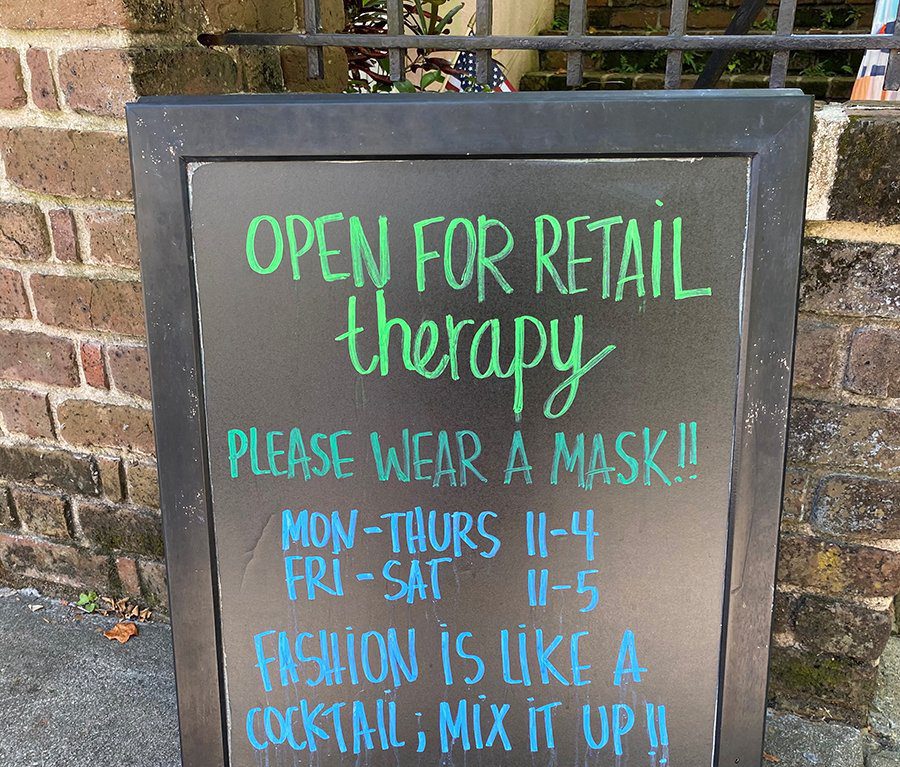Note: This information is from 2020 but much has changed since then. Please be sure to discuss your unique financial situation with your McKinley Carter Advisor or another trusted professional.

Quarantines have resulted in a huge upswing of online shopping. But beware of the temptation to overdo your retail therapy. Here's what you need to know.
Author's Note: Financial Strategist Monica M. Garver, CPA, CFP®, AIFA®, CDFA™ also contributed to this article.

If this is your wish (at left), maybe it is time to look at your spending habits and how they are related to you and your financial health. Retail therapy, or “shopping in order to make oneself feel happier” according to the Oxford Language Dictionary, has taken on new importance in this age of COVID-19. Quarantines, isolation from friends, family and workplace colleagues have resulted in a huge upswing of shopping from home — and it has never been so easy. Why? Online shopping through mobile apps on smart phones and tablets means stores never close and the consumer never has to leave home. The developers of these apps know what matters to consumers and design their apps and products to encourage shopping.
According to The Washington Post, May Retail Sales rose 17.7%, the largest monthly increase ever. Moreover, the sale of clothing and accessories accounted for an increase of an astounding 188% in retail sales.
What’s the number one priority when shopping online? Free Shipping. Today, nine out of ten consumers consider free shipping as their number one priority when shopping online.* The average amount to receive free shipping on most sites is $50, easy enough to achieve with offers such as buy two get one free or, as experienced shoppers know, BOGO. In fact, nine out of 10 consumers willingly give their email address and location to gain access to shopping apps, which can be a dangerous precedent to save $5.99 in shipping charges.
Next day delivery, a service once exclusively belonging to Amazon Prime, the most popular shopping app in the U.S. with 150.6 million* mobile users in Sept. 2019 (according to Statista, June 4, 2020), has now expanded into box stores like Wal-Mart, Target, and Lowes to level the competitive playing field.
Other marketing strategies of broad appeal include social media promotion (Facebook, Instagram, Twitter)

that showcase products with short videos, customer testimonials, and colorful photos. In fact, 55% of shoppers have bought a product directly through a brand’s social post. (AiTHORITY, FEB. 25,2020). Tracking potential customers’ browsing history has also become commonplace. Have you ever searched online for, say, a blender – then suddenly every time you open Facebook or a shopping app you see blender ads everywhere on the page? If you’re trying to gift shop for someone, don’t use a common device!
Another approach — although not a new one, but a revamped formula — is live stream shopping. The two largest companies, QVC (1986) and HSN (1982) implemented adjustments to capitalize on a captive, quarantined audience. Both companies made changes to their tried and true formulas for on-air presentations, delivery times and return policies. To assess product offerings, both companies surveyed buyers to indicate product categories most important to them. According to Mike George, president and CEO of both companies, "...various forms of internet shopping are growing at double-digit or even triple-digit rates." (Retail Dive, July 9, 2020)
Realistically, shopping does lift one’s spirits, especially when you are buying for someone else you care about. But consider this…That designer purse you’ve had your eye on is now 15% off (great news!), but the store credit card you’re going to use (to get rewards) has a 26.99% interest rate (not so great news). So there’s no savings to you unless you pay the credit card bill in full when your statement arrives. If you could pay in full, a wiser choice might just be to do so at the time of purchase. Check out these startling personal debt statistics:
- A Marketplace Edison Research Survey reveals that 41% of Americans would have difficulty covering an unexpected expense of $250
- The average American credit card debt is $5,700 and 41% of all households carry some sort of credit card debt. (ValuePenguin, June 17,2020)
We have all been cooped up with COVID-19 for what seems like an eternity, and the retailers have made it incredibly easy for us to shop online via our mobile devices (or handheld computers). We feel good shopping too; it provides some normalcy and stress-release from the pandemic, not to mention “retail therapy euphoria” for snagging that great online deal or must-have fashion. But beware of the temptation to overdo your retail therapy, as that bill will eventually arrive in your mailbox (or inbox) and will need to get paid IN FULL!
Additional sources:
- becomingminimalist.com/shopping-statistics/
- https://www.usatoday.com/story/money/2020/02/23/average-americans-credit-card-debt-how-much-it-costs-them/111330144/
- https://www.psychologytoday.com/us/blog/the-why-behind-the-buy/201305/why-retail-therapy-works
- https://www.retaildive.com/new/how-covid-19-boosted-qvc-hsn-and-livestreaming/581016
- https://www.valuepenguin.com/average-credit-card-debt
- https://esellercafe.com/adobe-digital-economy-index-shows-us-ecommerce-sales-up-49-percent-april/
- https://www.washingtonpost.com/business/2020/06/16/retail-sales-may/
- https://www.marketplace.org/2020/05/05/many-lack-a-financial-backstop-amid-pandemic/
